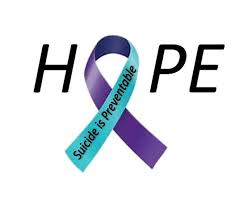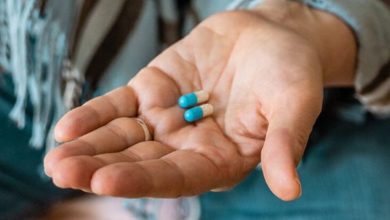Rising Above: Stories of Triumph and Transformation in Addiction Rehabilitation

With the ongoing opioid crisis gripping our nation, recovery from addiction is more important than ever. Unfortunately, even with advancements in treatment and research, many individuals still struggle to seek help and succeed in achieving sobriety. On a brighter note, though, there are countless stories of people overcoming their substance abuse issues through rehabilitation programs that prove the power of resilience and grit to turn one’s life around.
This article will look at real-life examples of individuals who have fought fearlessly against addiction, finding solace in rehab centres across the country as they strive for a better future. Join us on this inspiring journey to inspect triumphs during some of life’s most trying times.
Introducing the Inspiring Stories of Addiction Recovery
Addiction recovery is a long and challenging journey that requires immense courage, strength, and resilience. However, amidst the struggles and hardships, there are inspiring stories of individuals who have successfully triumphed over their addiction. These stories not only provide hope and motivation to those still fighting but also bring to light the importance of accessible and effective treatment.
From alcohol to opioids, addiction comes in various forms, and each experience is unique. That is why we are excited to introduce the inspiring stories of individuals who have found help and healing in a marijuana rehab in Thailand. These stories testify to the power of perseverance and the transformative impact of evidence-based treatment methods.
Overcoming Stigma and Finding Strength in Rehabilitation
The stigma attached to treatment can be daunting when it comes to addiction. For many people struggling with substance abuse issues, it is difficult to come forward and seek help freely due to fear of judgment and shame. However, stories like those featured in this article illustrate that even if reaching out is a challenge, it is worth fighting against stigmas while seeking help for an addiction.
When individuals finally take that brave first step towards recovery, they can find strength and healing in a rehabilitation centre. Meeting others on the same journey and connecting with professionals dedicated to helping them cope with their issues can be particularly powerful for those battling substance abuse. Moreover, evidence-based treatments like cognitive behavioural therapy (CBT) can provide insight into one’s behaviour and help individuals develop healthier coping mechanisms.
How to Support a Loved One in Addiction Recovery
Addiction is a family disease that affects not only the individual struggling with substance abuse but also those close to them. Knowing how to help can often feel overwhelming, especially when unsure of the best way to support your loved one on their journey.
Ultimately, being there for someone in recovery should be done with compassion and empathy. Showing your loved one that you are willing to stand by them, no matter what can be invaluable during their struggle with addiction. Additionally, reaching out for support from organizations like Al-Anon and setting appropriate boundaries can also help the person struggling with addiction and those close to them.
Exploring the Benefits of Cognitive Behavioral Therapy
Cognitive Behavioral Therapy (CBT) is a form of evidence-based treatment used in addiction recovery for decades. A CBT session involves working with a counsellor or therapist to identify and change unhealthy thinking patterns, feelings, and behaviour.
CBT aims to help individuals recognize the connection between their thoughts, feelings, and actions and better cope with their emotions. CBT can benefit those struggling with addiction because it helps them understand how their thoughts and feelings may contribute to their substance abuse. In addition, CBT can provide individuals with the skills necessary to cope with difficult situations without relying on drugs or alcohol as a crutch.
Diving into Dialectical Behavioral Therapy and Its Applications for Addiction Treatment
Dialectical Behavioral Therapy (DBT) is another evidence-based treatment used to help individuals struggling with substance abuse. DBT has its roots in cognitive behavioural therapy, but it takes a slightly different approach by focusing on mindfulness and emotional regulation.
In a DBT session, therapists work with their clients to identify unhealthy patterns of thought and behaviour and then help them develop strategies to cope in a healthier, more mindful way. In particular, DBT can help individuals struggling with addiction by teaching them how to maintain emotional balance and regulate their thoughts, feelings, and behaviours in moments of distress or intense cravings.
Spotlight on 12-Step Programs and Their Impact on Post-Rehab Success
12-step programs, such as Alcoholics Anonymous and Narcotics Anonymous, can be a valuable tool for those in recovery. These programs provide individuals with an organized support system after they have left rehab.
The core idea behind 12-step programs is that addiction recovery should be a lifelong journey — not just a brief stint in rehabilitation. It means that 12-step programs provide ongoing guidance and support, helping individuals stay on track with their recovery long after they have left the rehab facility. Furthermore, many 12-step programs emphasize building strong social bonds between members as a critical factor in maintaining sobriety.
Exploring Alternative Recovery Methods for Long-term Sobriety
In addition to 12-step programs, other alternative recovery methods are successful in helping individuals stay sober. For example, SMART Recovery is a community-based program with a science-based approach to addiction recovery.
SMART Recovery focuses on self-empowerment and encourages individuals in recovery to become their own best advocates. The program also provides members the tools and strategies to identify and manage their triggers, cravings, and stressors healthily. This approach allows individuals to take ownership of their recovery journey and develop personalized coping skills to help them stay sober for the long haul.
Pathways to Sobriety and Empowering South Floridians to Overcome Addiction





